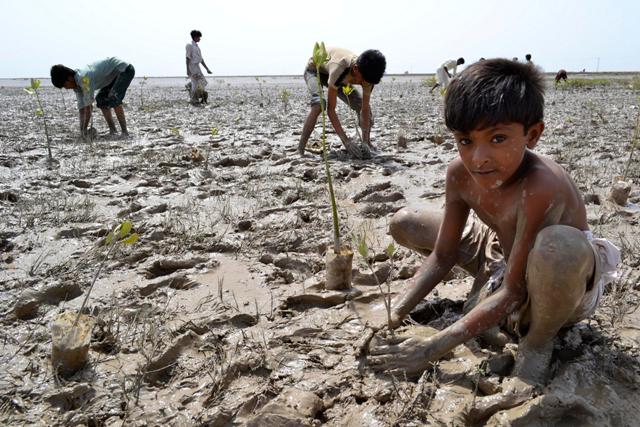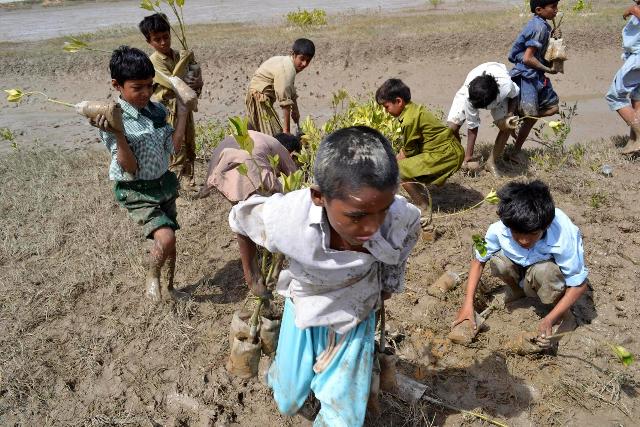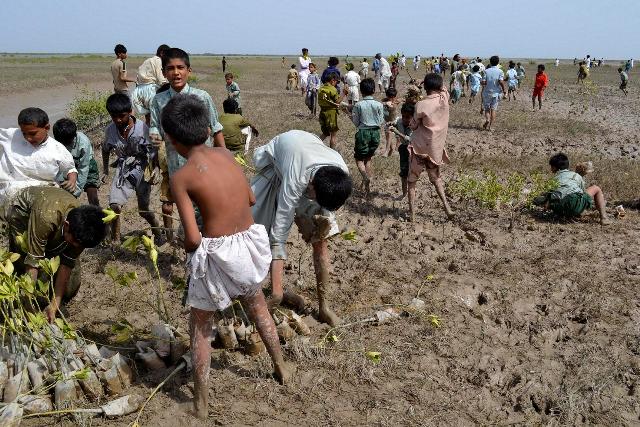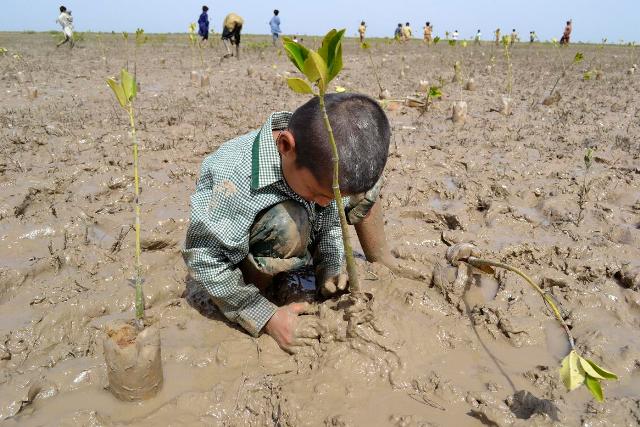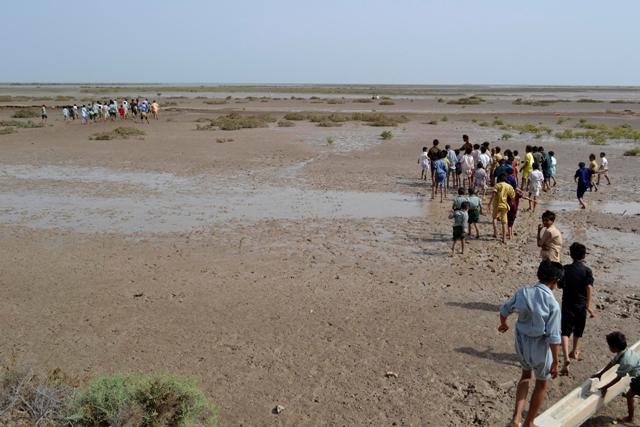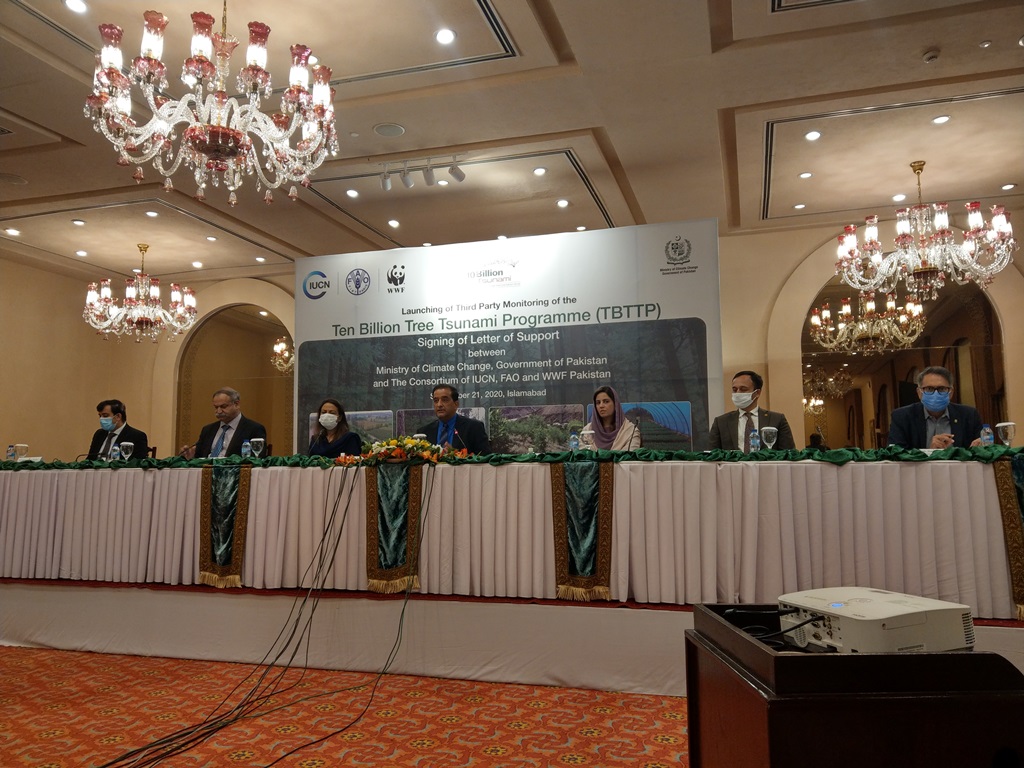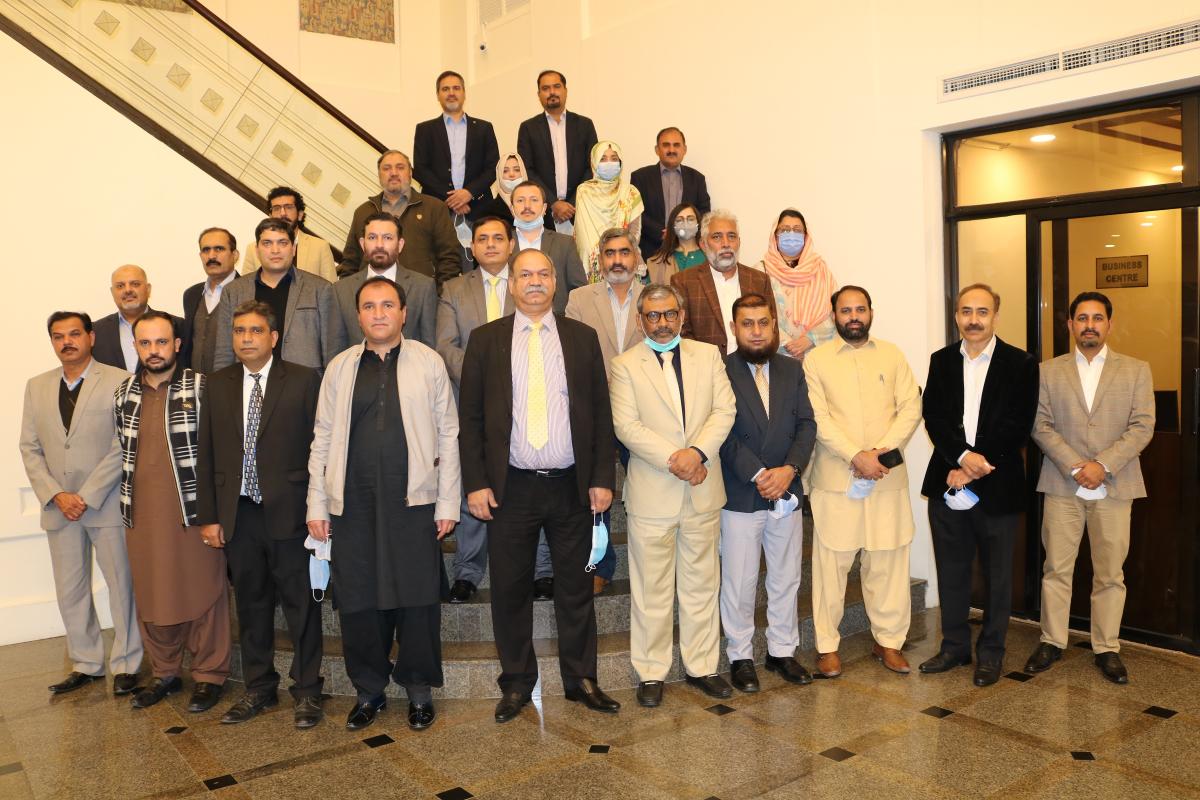IUCN Pakistan celebrated the World Envrionment Day at Keti Bunder
Karachi, June 10, 2011 (IUCN)
IUCN Pakistan, Karachi Office celebrated World Environment Day on 05 June 2011 at Keti Bundar in collaboration with the Sindh Coastal Community Development Project being executed by Sindh Coastal Development Authority. The other partners included Sindh Forest Department and United Welfare Organisation, a local CBO of Keti Bundar. The purpose of the event was to highlight the significance of Day and International Year of Forests and to create community awareness on importance of mangrove forest ecosystem.
The activities kicked off with a “Mangrove Planting Competition” in which more than 100 students from Primary and High Schools of Keti Bundar and Government Middle Schools of Jhaloo and Juho participated in the competition. The students from Government Middle School, Jhaloo secured the first position by planting the most number of mangrove saplings upto 630 within the allocated time. The Keti Bundar High School was selected as the runner up.
The competition was followed by an award distribution ceremony. The ceremony was attended by the local community members, government officials, Pakistan Navy, civil society and media.
The chief guest, Mr. Aftab Ahmad Abro, Deputy Project Director, Sindh Coastal Community Development Project awarded shields to the teams. Mr. Abro appreciated efforts of the students who participated in mangrove planting competition and viewed that such activities are very important for creating awareness. He also appreciated efforts of IUCN Pakistan in organising the World Environment Day at Keti Bundar and stressed that such programmes need be organized at community level regularly.
During his speech Mr. Ghulam Qadir Shah, NRM Coordinator of IUCN Pakistan highlighted the significance of WED and importance of forests to the global environment and the local economy. He admired the effort of students and their teachers in making the events successful. Highlighting the importance of International Year of Forests, he stressed on the need for conservation of mangrove forests as they act as a breeding ground for fish and shrimp and help in sustaining our fisheries resources. Mangroves also act as a barrier against natural disasters such as Tsunamis, cyclones and storms. Mr. Shah also illustrated the religious significance of planting trees and conservation of forests.
Speaking on the occasion, Mr. Akhar Hussain Samoo, Deputy Director Community Development, Sindh Coastal Community Development Project also highlighted community’s role in conservation of natural resources.
For more information or to set up interviews, please contact:
Ghulam Qadir Shah
Country Office. IUCN-Pakistan
1, Bath Island Road, Clifton, Karachi.
Phone: 021-35861540-2, Fax: 021-35861448
email address: ghulam.qadir@iucn.org
About IUCN
The world’s oldest and largest global environment network, IUCN, International Union for Conservation of Nature, envisions a just world that values and conserves nature. IUCN helps the world find pragmatic solutions to our most pressing environment and developmental challenges. It supports scientific research, manages field projects all over the world and brings governments, non-government organizations, United Nations agencies, companies and local communities together to develop and implement policy, laws and best practice. The Union’s headquarters are located in Gland, Switzerland.
IUCN Pakistan is part of the IUCN’s Asia Regional Programme based in Bangkok, Thailand. Established in 1985 to assist in the preparation of Pakistan’s National Conservation Strategy, IUCN Pakistan has grown to become the largest country programme of IUCN. Together with its partners and members, it is implementing several conservation initiatives across the country through institutional strengthening, policy advocacy and field work. Currently there are 27 active members of IUCN in Pakistan, including the Government of Pakistan as the state member, six government agencies and 20 NGOs. Over 100 volunteers from Pakistan work in IUCN’s six specialised commissions.
